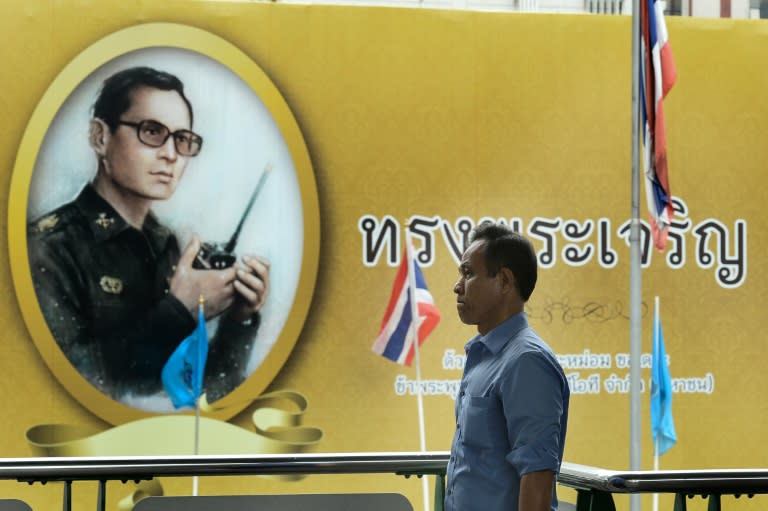Ailing Thai king's lung infection eases, kidneys still failing: palace

Thailand's hospital-bound King Bhumibol Adulyadej is still being treated for kidney failure although an infection in his lung has eased, the palace said Saturday, in the latest update on the 88-year-old's ailing health. Bhumibol is the world's longest-reigning monarch and beloved by many in Thailand. However he has not been seen in public for nearly a year as he battles a series of ailments in a Bangkok hospital. The palace tightly controls news about his health and it is difficult to ascertain his overall condition. The latest statement issued by the Royal Household Bureau on Saturday night said he was recovering from a respiratory infection in his left lung after being treated with antibiotics. However it said he continues to receive renal replacement therapy, a treatment for acute kidney failure. "Today he has no fever and his breathing is normal...a blood test showed that the infection has reduced but he still has a small amount of urine, therefore doctors continue to give him CRRT," the statement said, referring to continuous renal replacement therapy. Bhumibol has been treated for a variety of health complications over the past two years, including bacterial infections, breathing difficulties, heart problems and hydrocephalus -- a build-up of cerebrospinal fluid often referred to as "water on the brain". His reign has spanned seven tumultuous decades and his frail health is a cause of great public concern for Thais, most of whom have never known life under another king. He is also shielded by one of the world's harshest royal defamation laws, which has been used to jail scores of Thais for criticising the monarchy. Analysts say anxiety over the end of Bhumibol's reign has aggravated the past decade of political conflict in Thailand, with elites jostling for influence. But open discussion of his legacy and the future of the institution is all but impossible because of the lese majeste law. Use of the law has surged under the ultra-royalist generals that seized power in a 2014 coup.


